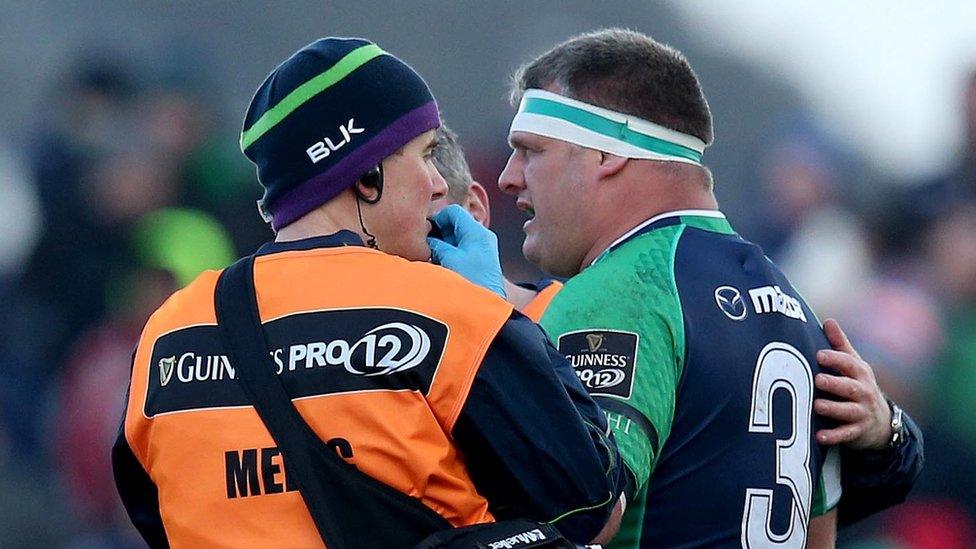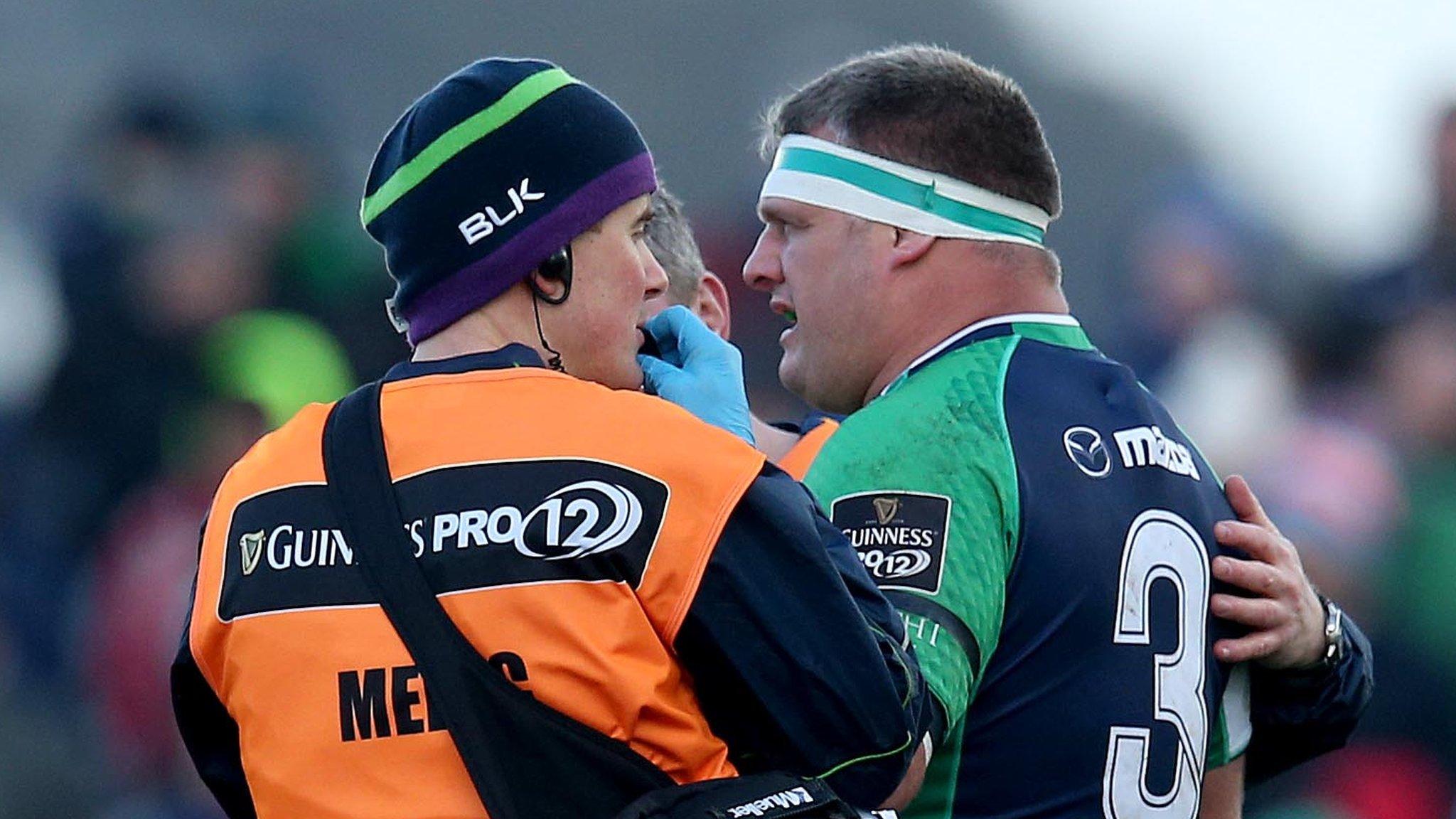Only 'mild' memory effects found from rugby concussion
- Published

Nathan White has retired from playing rugby
A study on the long-term effects of concussions in former Scotland rugby players has found they displayed "only some mild memory effects".
Fifty-two ex-internationals with an average of 14 concussions each were examined by the University of Glasgow.
Multiple sports concussions have been linked to the neurodegenerative disease chronic traumatic encephalopathy.
It has been found in the brain tissue of deceased former NFL athletes, boxers and rugby players.
The former players were examined alongside 29 control subjects.
"Overall there is not a suggestion of widespread decline in daily function in ex-rugby internationalists who had a high number of repeat concussions," said Tom McMillan, Professor of Clinical Neuropsychology.
"Although some differences in memory were found, these were mild overall and their cause uncertain.
"Despite a high number of repeat concussions in the retired rugby players, effects on mental health, social or work function were not evident some 20 years after they had stopped playing."
'Multiple concussive injuries'
Dr Willie Stewart, the consultant neuropathologist who discovered the first case of CTE in the brain tissue of a former rugby player was also involved in the research.
Dr Stewart advises World Rugby, the Football Association and other governing bodies on their concussion protocols
Annual injury audits of England's Premiership have shown an increase in reported concussion in each of the past five years, although rugby's governing bodies say improved awareness and recognition have boosted those figures.
Meanwhile this week, prop Nathan White of Connacht and Saracens lock Alistair Hargreaves both announced their retirements having sustained multiple concussion injuries.
Scotland's most-capped international, Chris Paterson, was among those who participated in the study, due to be published on Friday in the Journal of Neurology, Neurosurgery and Psychiatry.
It found that "despite multiple concussive injuries in the retired rugby players, there were not significant effects on daily life overall".
The former internationals performed less well on a test of verbal learning, and a separate test of fine co-ordination of the dominant hand, but the study says these effects were "mild".
The research also found that there were no "significant associations" between the number of concussions and the participants' performances on cognitive tests.
'Proactive approach'
Scottish Rugby welcomed the publication of the study's findings.
A spokesman said: "Our support in actively recruiting former Scotland internationalists to take part in the study once again demonstrates the proactive approach the sport is taking to better understand concussion in both current and former players.
"While the results in this study show no evident effects on general long-term health, Scottish Rugby believes it is important knowledge of concussion continues to grow and we will contribute to relevant future studies whenever possible.
"The study also appeared to demonstrate the wider benefits of being active and playing sport, with the former players recording good cardio-vascular results and nearly all reporting being in good or excellent health."
- Attribution
- Published28 September 2016
